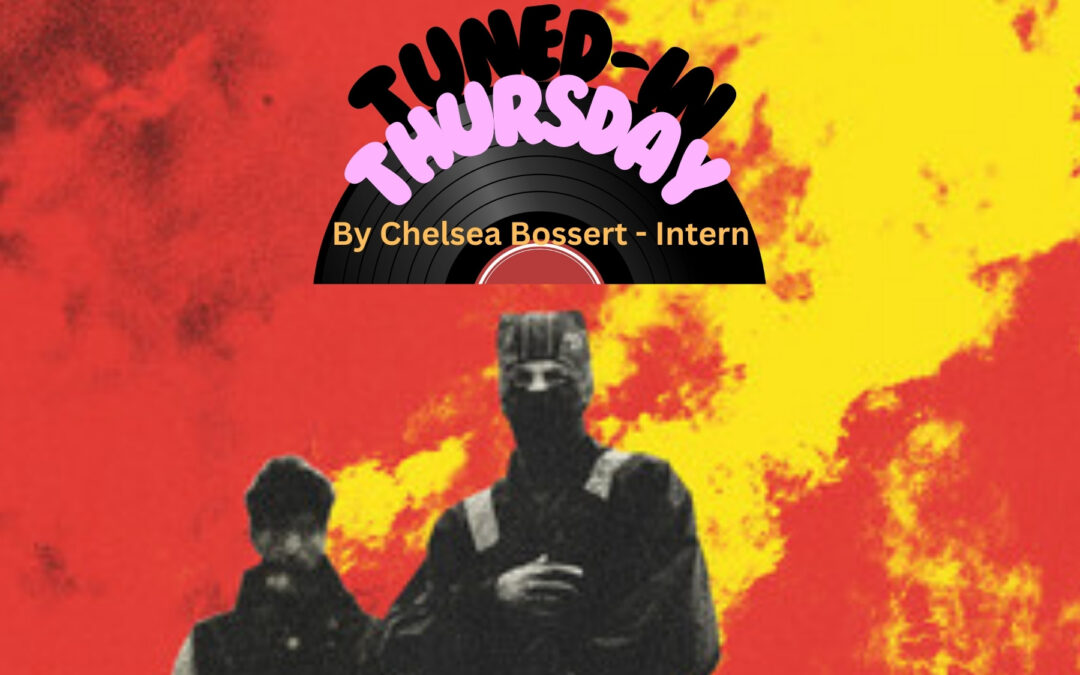The serious yet carefree demeanor of musical duo Tyler Joseph and Josh Dun seems like it doesn’t work on paper. Bouncing from genre to genre: reggae, pop, rap, rock, etc. – sometimes it stretches artists too thin. However, for Joseph and Dun, their elasticity is their greatest strength, fusing various different musical stylings throughout their over 15-year artistic tenure, as well as cultivating an engaged fanbase through in-album storytelling.
Twenty One Pilots’ newest outing is called “Clancy,” and hit selves last Friday, May 24. “Clancy” aims to be the closing remark on the “Blurryface” trilogy. Their departure from lighter themes a la “Scaled and Icy,” and returning to more serious topics like on albums such as the aforementioned “Blurryface” and the fan-favorite “Trench,” is a welcomed transition – fans have been wanting “darker” material for a while now.
The band, in an effort to convey their meanings of their albums better, have created a whole story in which there are several different main characters, storylines and plot-points interwoven in the songs and in the music videos.
“Blurryface” starts off the trilogy focusing on the titular character representing all of Joseph’s insecurities and faults. “Trench” focuses on the character of “Clancy” and zooms out with the “Blurryface” allegory to tackle mental illness as a whole, using a physical location (a walled city ruled by demagogues) in order to get across their message. Finally, “Clancy” takes a look at the titular character’s psyche and how it all relates back to Joseph.
While the material on “Clancy” is darker and more focused than “Scaled and Icy,” and the concentration on storytelling is promising, that does not mean that the switch between the two was a big leap.
Lyrically, the album starts out with a bang, “Overcompensate” is an obvious choice for first-track, as a deep, robotic voice welcomes the listener “back to ‘Trench.’” Joseph ties the break back to “Trench” by singing a chorus from “Bandito” in the intro.
Musically, the track takes cues from both “Blurryface” and “Trench” both with Joseph’s rapping and the bombastic production, consisting of lots of synths, racing guitar and bass lines, as well as acoustic guitar near the end. The meandering indie pop of “Scaled and Icy” seems to have officially come to and end.
The next two tracks, “Next Semester” and “Backslide” are my favorite on the record. Both songs tackle the topic of mental health and lead the listener down anxiety-riddled roads and use Joseph’s personal struggles as lyrical fuel.
“I remember/I remember certain things/What I was wearin’/The yellow dashes in the street/I prayed those lights would take me home/Then I heard, ‘Hey, kid, get out of the road!’” Joseph sings in “Next Semester.”
These dark lyrics specifically deal with the protagonist of this song reminiscing back to a time when they were a student, panicking over their academics and experiencing a mental breakdown where they could have ended up taking their own life.
The honest yet layered allegorical lyrics like these are present on a lot of the beginning tracks like “Next Semester,” “Backslide,” “Midwest Indigo” and “Vignette.”
“Rеachin’ out on my way home/You can be so cold, I’ll try again/You make me sad and second-guess myself/You can be so cold, Midwest Indigo,” Joseph sings on “Midwest Indigo.”
However, the relatability and instrumental uniqueness, along with the catchiness of the tracks, soon fades. While tracks like “Lavish,” “Navigating,” and “Oldies Station” are not terrible per se, they are not very interesting lyrically.
“Welcome to the new way of livin’/It’s just the beginning of lavish/From the floor to the ceiling/Welcome to the style you haven’t seen in a while,” Joseph sings on “Lavish,”
Joseph, by creating all of these worlds and characters, stretched himself a little bit too thin on this record. Metaphors and allegories get mixed up, storylines get too confusing, and the tightly focused beginning ends up falling apart near the last third of the track-list.
To me, “Trench” ended up being the best of all worlds – lyrically, instrumentally, and story-wise. In order to have stuck the landing, Joseph and Dun would have to have outdone the monumental “Trench,” which is a tall order to fulfill.
“Clancy” is not a failure of a record, but it is not a home run either. Hopefully whatever Joseph and Dun do next will not only hit the mark musically, but also within their complicated yet intriguing storylines.

